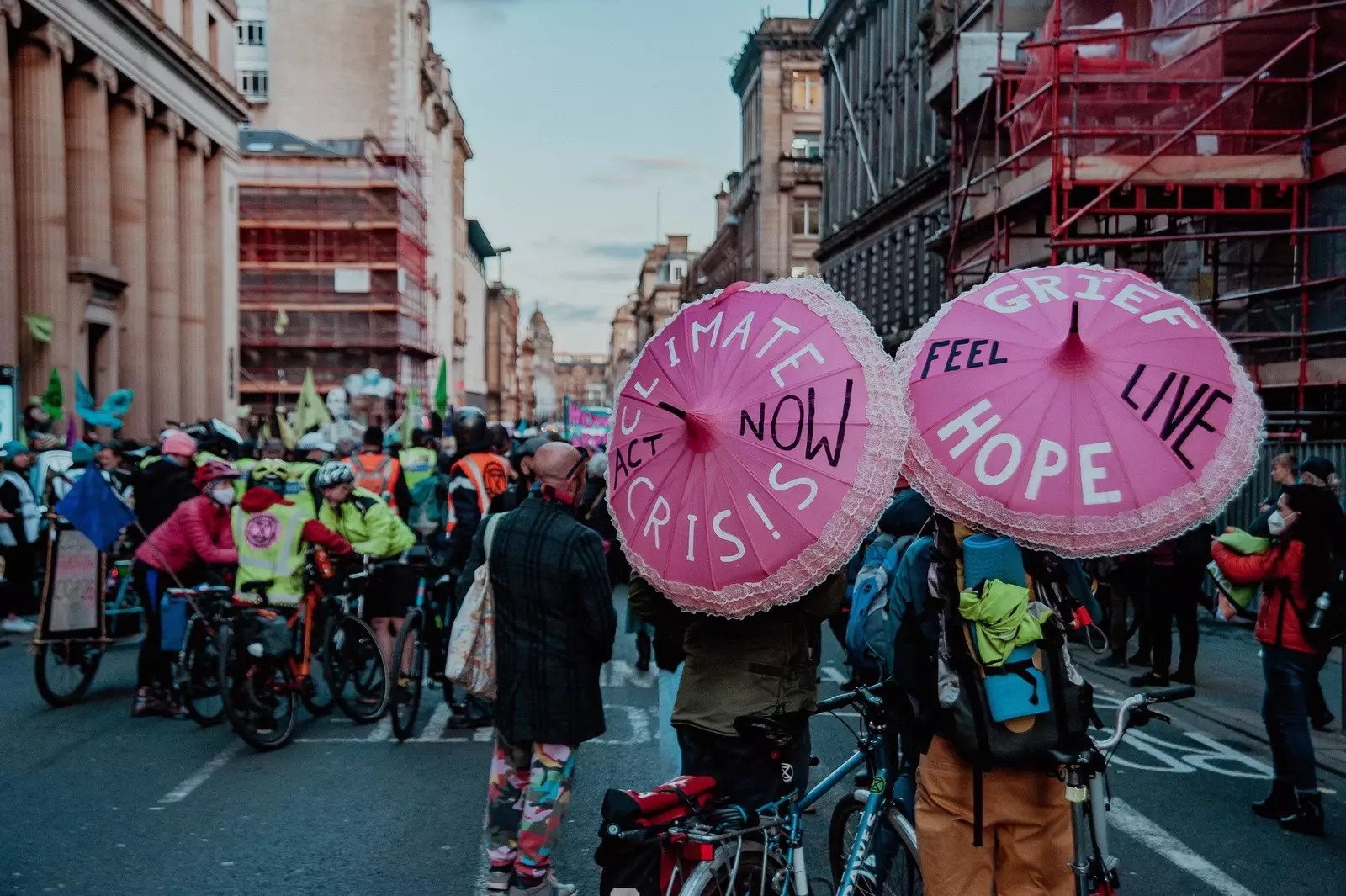Successful Women Are Starting Businesses. Yes, Even After 50.
Arthur C. Brooks, the departing CEO of the American Enterprise Institute, wrote a long researched essay in The Atlantic this month. It says that your career peaks at 50, and woe to those who don’t accept their decline gracefully.
While I was reading it, drawn by the fear-inspiring headline “Your Professional Decline Is Coming Sooner Than You Think,” I felt how little the bleak worldview and the sense of loss reflect the reality of women I know as they near and pass 50.
The women I know aren’t declining. They’re getting stronger and more engaged in careers, often second careers they love. They are starting businesses. Some are taking greater risks, often to make a greater impact. Some wealthy women at this age are stepping out from the shadow of their families to become leaders of new movements.
I think three things are going on. Brooks’ view is deeply informed by life inside an institution. Women leaders haven’t ever been able to get a foothold in institutions, which has its downsides and upsides. There’s a less a sense of being at the top of a narrowing hierarchy, with younger people jostling to push you off your perch.
Second, the investments women made in relationships and community earlier in their careers have started paying dividends. Women of professional stature over 40 have wide and deep networks, and the sensibility to use them. If you didn’t have that, you wouldn’t have survived.
And third, the context has changed: The #MeToo movement and a more entrepreneurial economy are opening up doors, windows and cracks for women. Held back, they’re moving in.
My sense is anecdotal, but it’s backed up by some stats and other reporting. Over the past 20 years (1997–2017), the number of women-owned businesses has grown 114% compared to the overall national growth rate of 44% for all businesses. Women-owned businesses now account for 39% of all U.S. firms, employ 8% of the total private sector workforce and contribute 4.2% of total business revenues.
And, contrary to what Brooks’ wrote , the average age of the founders of the highest-growth startups was 45. Given that caring for children generally causes women, on average, to lag a few years in their careers, I think it’s a safe bet that more older women are starting successful companies than in the past, and that they account for a growing share of the top startups.
There also is a growing number of women-owned investment firms seeking and finding experienced women entrepreneurs.
There is, in fact, a whole ecosystem of women who have achieved a certain level in their career who are now supporting other women of all ages, but especially the ones they know, who tend to be older.
This doesn’t fit with Brooks’ view of a decline after 50 — but that may be because the world of successful professional and entrepreneurial women is growing up separately. The institutional worlds dominated by men have proven hard to crack — so we have carved a separate space a short distance away, a fast-growing space, where the rules are little different and age isn’t such a big deal. Think of the dinner parties you know: The best conversations happen in the kitchen where people, many of them women, are washing the dishes. The kitchen is the entrepreneurial sector.
The Impact of #MeToo
I’ve been thinking about this lately as I’m examining the question of what I should be doing with my time, as a woman journalist with an expertise in finance and business. A year or two ago, I wrote about a piece for Quartz about how disappointed I was that many powerful men were ducking and covering instead of grappling with the way women have been harassed and excluded from business institutions.
Me Too didn’t change many men I know.
But it has changed women, including me.
I’ve written recently about two women entrepreneurs over 50, Sallie Krawcheck and Mary Stuart Masterson. Krawcheck’s Ellevest is a women-focused financial advisor that is seeing double-digit month-over-month growth; Masterson, an actress, is starting a film studio and production company, Upriver Studios, in upstate New York with a small team that’s devised an interesting hybrid investment model. The project also includes a nonprofit training program.
I did what I’ve always done as I reported the story: I called around to see what people thought of these two entrepreneurs. Were they reputable players? Were they successful? In both cases the reporting calls and talks with three or four people turned up a vague sort of what I’ll call, for lack of a better word, chum. When I reached out to their male peers, the rumble I heard was that Krawcheck’s business was small, and she made too much of herself in the media. Similarly, Mary Stuart Masterson was a carpetbagger hogging the limelight.
Had these two powerful women been men, I don’t believe the doubts ever would have been voiced. Men talking about other men, especially in a business setting, give each other the benefit of the doubt. They start with “he’s a great guy,” “Heckuva job, Brownie,” “bright man.” They call each other “brother.”
Where men give other men the benefit of the doubt, especially when class, race and school are shared, that’s not always extended to women.
If I were a younger reporter I’d probably have let those off-handed negative remarks color my coverage. It is a human behavioral tendency, perhaps born out of pride in our own intellectual abilities, to give more weight to subtle cues than they deserve.
I might have devoted more time to digging out a negative narrative, instead of investing that time to look at the Ellevest numbers on file with the SEC and considering the details of the financial plans Masterson and her business partner, Beth Davenport, have drawn up. The substance of their track records far outweighed the vague comments.
MeToo brought to light the breadth and systemic nature of the discrimination that women have faced. I don’t know why so many men don’t see it, or don’t seem to care.
When I began to focus on what I’d experienced in the context of what other women reported happening to them, I could begin to see more clearly how women are held back and hold themselves back. I can make an active decision now, when I see it happening, to give other women what men have long given each other: the benefit of the doubt.
In Brooks’ story — the one with that terrible headline: Your Professional Decline is Coming Much Sooner Than You Think — he writes this scene about a man he overheard on the plane.
“It’s not true that no one needs you anymore.”
These words came from an elderly woman sitting behind me on a late-night flight from Los Angeles to Washington, D.C. The plane was dark and quiet. A man I assumed to be her husband murmured almost inaudibly in response, something to the effect of “I wish I was dead.”
Again, the woman: “Oh, stop saying that.”
I didn’t mean to eavesdrop, but couldn’t help it. I listened with morbid fascination, forming an image of the man in my head as they talked. I imagined someone who had worked hard all his life in relative obscurity, someone with unfulfilled dreams—perhaps of the degree he never attained, the career he never pursued, the company he never started.
At the end of the flight, as the lights switched on, I finally got a look at the desolate man. I was shocked. I recognized him—he was, and still is, world-famous. Then in his mid‑80s, he was beloved as a hero for his courage, patriotism, and accomplishments many decades ago.
It wasn’t lost on me who the stronger character was in that exchange. So maybe some men are faltering in their careers as they reach 50 and beyond, or always have faltered, and maybe, in part, they want to. Working in those hierarchical institutions as you age is indeed a daunting prospect.
The women I know are getting stronger with age. We developed all those muscles carving our own paths and holding each other up along the way — and those muscles stand us in good stead now.






